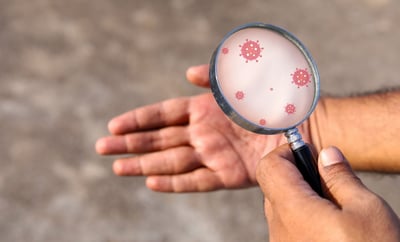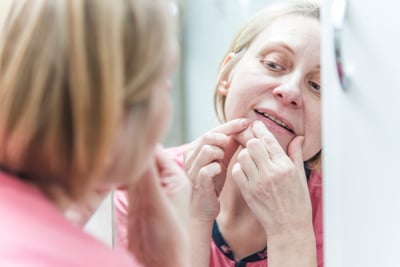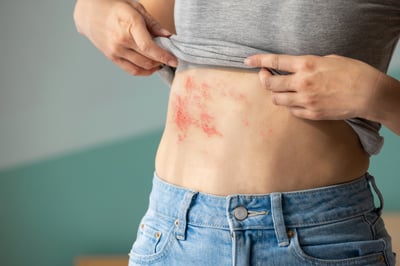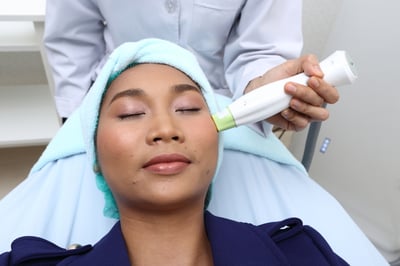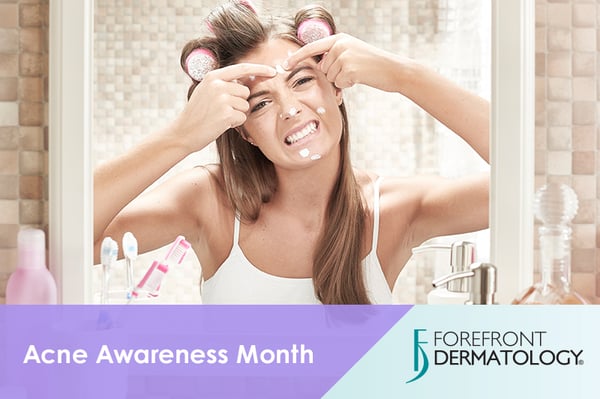
Acne Awareness Month Whether you call them zits, blemishes or carbuncles; acne by any name makes it difficult to put your best face forward. Basically, it’s an inflammatory skin condition that affects your skin’s oil glands. Your pores (little bitty holes in your skin) connect to your oil glands via follicle canals. Acne causes these glands to overproduce oil (sebum) that eventually cause these canals get gunked up with oil, dead skin cells, hair and bacteria – causing inflammation in the form of a pimple. In honor of June being Acne Awareness Month, we’re breaking out some hard truths related to your breakouts. Acne Doesn’t Care If You’re 14 or 40 Though it’s most commonly associated with adolescents going through hormonal changes associated with puberty, acne can occur at any age. “Acne can really affect anyone,” says Dr. J. Mark Jackson, Clinical Professor of Medicine at the University of Louisville and board-certified dermatologist operating out of the Forefront Louisville clinic. “Though it’s seen more often in teenagers. Increased hormonal production at adolescence creates increased oil production. And, of course, increased oil production leads to those red bumps and pustules more commonly called zits.” What Goes Inside Affects Your Outside – When you eat well, you’re healthier overall. While greasy foods and chocolate are often associated with breakouts, it’s their effect on your diet that eventually affects your skin. “While diet is a fundamental part of your overall health, it may also trigger acne breakouts,” says Dr. Jackson. “I have many patients who have identified dietary triggers that cause flare-ups – and there are many who don’t notice any correlation. Every person is different, so every person’s skin reacts to diet in different ways.” Your Skin is Not Immune to Stress – From heart problems to depression, studies have shown that stress affects your body in many often life-threatening ways. Your skin is no different. Stress hormones can cause acne breakouts and flare-ups. Washing May Be the Solution and the Problem – Acne is caused by an increased oil production in your skin that clogs pores and allows bacteria to flourish. While washing helps remove excess oils, over-washing can dry out your skin, triggering glands to produce even more oil. “While face washing may not necessarily cause acne, many people are surprised to learn that it can actually make the problem worse,” says Dr. Jackson. “While removing the oils that clog pores may seem like the logical solution to acne, stripping your skin of all of its oils causes your glands to produce even more oil – thus more acne.” To Pop or Not To Pop, That Is the Question – It’s incredibly tempting (and incredibly gratifying) to pop a pimple, but it may actually make acne worse by releasing bacteria and oil to the surrounding skin – not to mention the potential for infection, inflammation or scarring. Although acne may sound complex and a little scary, it’s actually the most common skin condition – affecting some 80 percent of all people between the ages of 11 and 30. If you’re looking to break out of your acne breakout cycle, see one of the skin care experts at Forefront Dermatology. To start on your path to clearer skin, visit the Locations page today.
